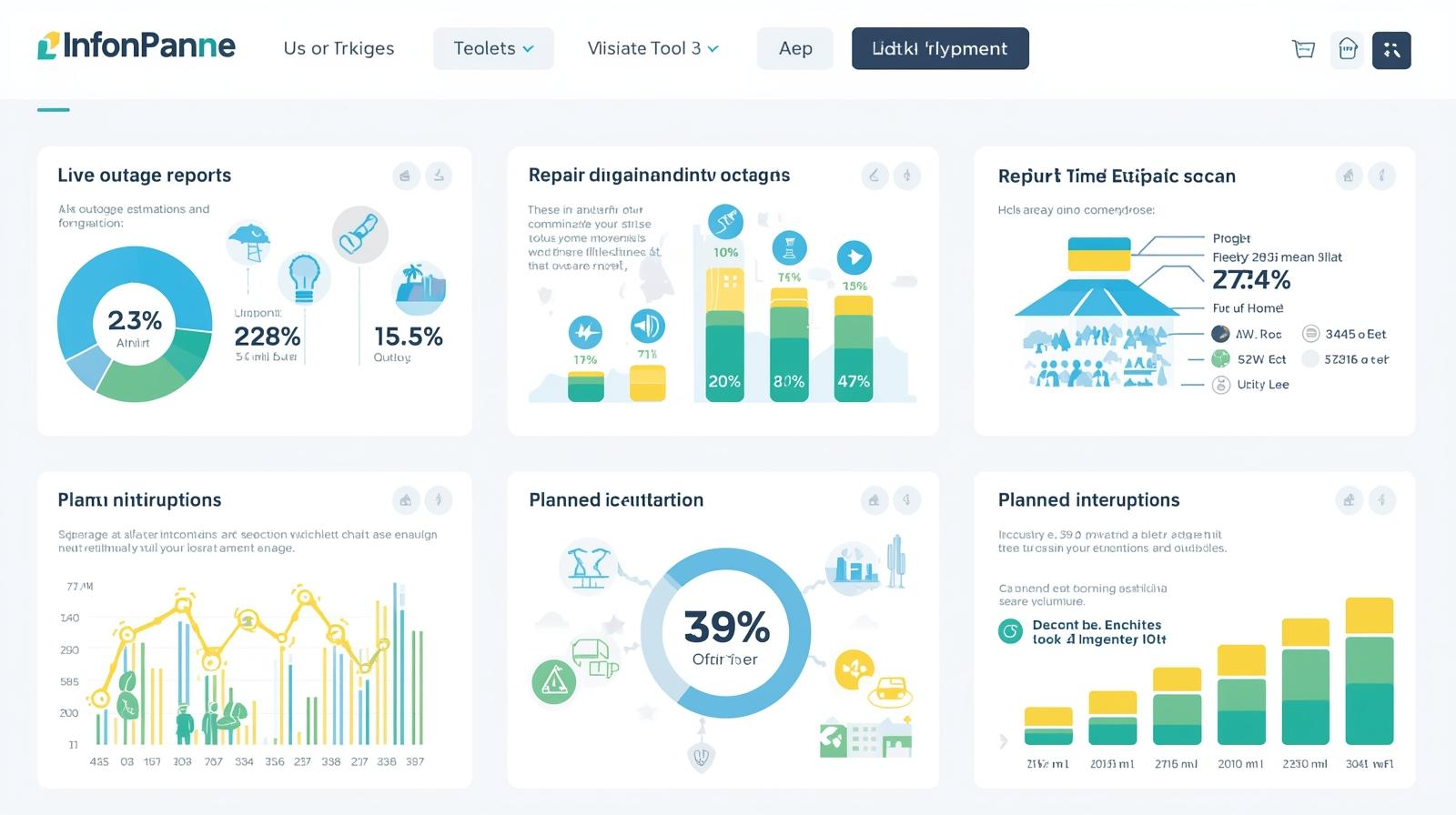In today’s competitive job market, technical skills alone often aren’t enough to push you ahead. Whether you’re just starting your career or looking to climb the corporate ladder, one thing is clear: soft skills are becoming just as important as hard skills. But what exactly are soft skills, and how do they affect your career?
Do you find yourself struggling with communication at work? Or maybe you’re wondering how to better manage your time? These are common worries many of us face. But here’s the good news: mastering these key soft skills can unlock new opportunities, increase your value as an employee, and help you stand out in a sea of applicants.
In this article, we’ll break down the top 10 soft skills that can propel your career forward and why you need to develop them. Let’s explore these essential skills, which not only make you a better employee but also a better colleague and leader.
Moreover, by focusing on these skills, you can create a more balanced and successful career. Many professionals have found that coaching programs like PedroVazPaulo Coaching can be incredibly helpful in guiding them through the process of building and enhancing these abilities. Whether you’re in leadership or just starting out, soft skills will make a significant difference in how you’re perceived and how effective you are.
Why Soft Skills Matter: The Key to Unlocking Career Success
Soft skills have long been undervalued compared to technical skills. But as companies realize that interpersonal dynamics, adaptability, and problem-solving are crucial for growth, soft skills have taken center stage.
Consider this: a survey by the World Economic Forum revealed that by 2025, the demand for skills such as emotional intelligence, communication, and leadership will increase significantly. It’s clear that these traits are no longer optional. They’re vital to career success, regardless of your industry.
Soft skills also help you build meaningful relationships at work, improving team collaboration and creating a positive work environment. For example, employees who can communicate clearly and work well in teams tend to have higher job satisfaction and better chances of promotion. In fact, research has shown that people who excel in soft skills can often secure promotions more quickly than those with only technical expertise.
What Are the Top 10 Soft Skills to Develop for Career Advancement?
Now that we understand why soft skills are so important, let’s dive into the top 10 soft skills that can help you accelerate your career:
1. Communication: The Art of Expressing Yourself Clearly
Good communication is the cornerstone of almost every successful career. Whether you’re delivering a presentation or engaging in a one-on-one conversation, how you convey your ideas can make or break your success.
- Verbal communication: Clear articulation of ideas is essential in meetings, emails, or phone calls.
- Non-verbal communication: Body language, tone, and facial expressions can reinforce or contradict what you’re saying.
- Active listening: Listening attentively and responding thoughtfully fosters better relationships with colleagues and clients.
Example: Think about a manager who holds weekly team meetings. If they clearly communicate goals and expectations, the team is likely to perform better. But if communication is vague, confusion and misunderstandings can arise, leading to decreased productivity.
2. Emotional Intelligence: Understanding and Managing Emotions
Emotional intelligence (EQ) is the ability to recognize, understand, and manage your emotions and those of others. In the workplace, this can mean remaining calm under pressure, offering empathy to a distressed colleague, or knowing when to give constructive feedback.
- Self-awareness: Recognizing your emotions and their impact on your work.
- Self-regulation: Managing your emotions in challenging situations.
- Empathy: Understanding others’ perspectives and responding to their feelings appropriately.
Example: An employee who can stay composed when facing tight deadlines and help calm their stressed-out coworkers will stand out as a leader.
3. Adaptability: Thriving in Changing Environments
Change is inevitable, especially in today’s fast-paced work environment. Being adaptable means embracing change and learning how to pivot quickly when required.
- Flexibility: Ability to adjust your approach when challenges arise.
- Learning agility: Willingness to learn new skills and strategies.
- Open-mindedness: Being receptive to new ideas and constructive criticism.
Example: During the global pandemic, employees who could shift to remote work seamlessly and adopt new tools quickly were able to maintain productivity and even advance their careers.
4. Problem Solving: Finding Solutions in Difficult Situations
Employers value individuals who can identify problems and take initiative to find solutions. Strong problem-solving skills show that you’re capable of thinking critically and logically.
- Analytical thinking: Breaking down complex issues into manageable parts.
- Creativity: Thinking outside the box to find innovative solutions.
- Decision-making: Weighing the pros and cons before taking action.
Example: Imagine a software developer faced with a technical glitch. Rather than panicking, they can assess the situation, come up with potential fixes, and implement the most effective one.
5. Leadership: Inspiring and Guiding Others Toward Success
Leadership isn’t just about managing people. It’s about inspiring and motivating others to do their best work. Whether you’re a team leader, a project manager, or an individual contributor, leadership can help you influence positive outcomes in the workplace.
- Vision: Setting clear goals and inspiring others to reach them.
- Delegation: Knowing when and how to entrust tasks to others.
- Conflict resolution: Addressing disputes calmly and fairly.
Example: A great leader helps their team stay focused on their shared goals while also offering guidance and support when needed.
6. Time Management: Getting Things Done Efficiently
Effective time management enables you to prioritize tasks and meet deadlines, which is crucial in every job. By managing your time effectively, you can produce higher-quality work and avoid burnout.
- Prioritization: Focusing on tasks that contribute most to your objectives.
- Scheduling: Organizing your day or week to ensure productivity.
- Avoiding procrastination: Taking action without delay.
Example: An employee who effectively balances multiple projects while meeting deadlines is seen as highly dependable and may be considered for more responsibilities.
7. Teamwork: Collaborating Effectively with Others
The ability to work well with others is one of the most sought-after soft skills. Successful teamwork requires flexibility, communication, and mutual respect.
- Collaboration: Working together to achieve a common goal.
- Conflict management: Navigating differences in opinions to maintain team harmony.
- Supportiveness: Offering help when needed and being a reliable teammate.
Example: A marketing team working together to launch a campaign benefits from diverse ideas and contributions, which leads to a successful outcome.
8. Conflict Resolution: Turning Disagreements into Opportunities
Disagreements are inevitable, but how you handle them can define your professional reputation. Being able to resolve conflicts calmly and diplomatically is a critical skill.
- Mediation: Facilitating a discussion to help parties find common ground.
- Patience: Remaining calm and composed during tense moments.
- Compromise: Finding mutually beneficial solutions.
Example: Two coworkers might disagree on a project approach. A skilled conflict resolver will ensure both parties feel heard and work toward a solution that satisfies everyone.
9. Negotiation: Reaching Agreements That Benefit Everyone
Whether you’re negotiating a salary, project scope, or deadlines, negotiation skills are essential for career growth. Effective negotiators know how to reach agreements that satisfy all parties involved.
- Preparation: Understanding both your needs and the other party’s perspective.
- Tactics: Using persuasion and reason to reach an agreement.
- Patience: Not rushing the process, but finding a solution that works for everyone.
Example: An employee negotiating a pay raise can present their achievements and value to the company in a clear, respectful way to secure a better offer.
10. Work Ethic: Going the Extra Mile
A strong work ethic shows dedication, reliability, and responsibility. It’s about doing your best even when no one is watching and taking pride in your work.
- Consistency: Delivering high-quality work consistently.
- Dependability: Being someone others can rely on.
- Initiative: Taking responsibility for tasks and seeking additional ways to contribute.
Example: A colleague who consistently produces high-quality work, arrives on time, and takes initiative without needing constant supervision will quickly earn the respect of their peers and managers.
How Can You Develop These Soft Skills?
While some of these skills may come naturally, most of them can be developed and improved over time. Here are a few practical ways to enhance your soft skills:
- Seek feedback: Regularly ask for constructive feedback from peers and supervisors to identify areas for improvement.
- Practice mindfulness: Techniques such as meditation can help you manage stress and improve emotional regulation.
- Join training programs: Participate in workshops or coaching sessions, such as PedroVazPaulo Coaching, to develop specific soft skills.
- Observe others: Learn by watching how successful individuals handle communication, problem-solving, and leadership.
Conclusion: Your Path to Career Advancement Starts with Soft Skills
As we’ve explored, soft skills are essential to career success. Whether you’re in a leadership position or just starting out, mastering these abilities will make you more effective, more likable, and more valuable to your team. Focus on developing these skills, and you’ll see significant growth in your professional life.
Don’t underestimate the power of soft skills. Start by prioritizing them today, and watch how your career advances. If you’re looking for personalized guidance, programs like PedroVazPaulo Coaching can help you hone these skills and turn them into real-world results.
Frequently Asked Questions
1. How Can I Measure My Progress in Developing Soft Skills?
Tracking the development of soft skills can be a challenge, but it’s certainly possible. One effective method is to ask for regular feedback from peers, managers, or mentors on your performance in areas like communication, leadership, and adaptability. Additionally, you can use tools like self-assessment surveys or 360-degree feedback programs to gain a holistic view of your strengths and areas for improvement.
Example: If you’re working on improving your conflict resolution skills, you might track how often you successfully manage disputes without escalating tensions. Over time, you should notice fewer conflicts arising or quicker resolutions when they do.
2. Are Soft Skills More Important Than Technical Skills in Today’s Job Market?
While technical skills remain essential, especially in fields like engineering or IT, soft skills are gaining significant importance. In fact, studies show that employers increasingly prioritize soft skills—like emotional intelligence and problem-solving abilities—because these traits contribute to effective collaboration, leadership, and adaptability in an ever-evolving work environment. For example, a software engineer with strong communication skills is more likely to work well in a team and convey complex technical information to non-technical stakeholders.
3. How Long Does It Take to Improve My Soft Skills?
Improving soft skills doesn’t happen overnight. The time required varies based on your current abilities, the skills you want to focus on, and how much effort you put into the process. Generally, you’ll start noticing improvements within a few months if you actively work on skills like time management, team collaboration, or adaptability. However, mastery might take a year or more, depending on the complexity of the skills you’re working on.
Tip: Regular practice, such as participating in workshops, taking part in team projects, or seeking mentorship, can significantly speed up your progress.
4. How Can Soft Skills Help Me Transition to a New Industry or Role?
Soft skills are highly transferable across industries and roles. For instance, if you’ve spent years in customer service, your communication and problem-solving skills will be beneficial when transitioning into project management or sales. Leadership, empathy, and negotiation abilities are often valued regardless of the industry. By highlighting your soft skills during interviews and in your resume, you can showcase your potential for success in a new role, even if your technical experience in that field is limited.
Example: A teacher transitioning to a corporate training role will find that their communication and presentation skills are directly applicable to training and development tasks.
5. Can Soft Skills Help Me Secure a Promotion?
Yes! Soft skills play a significant role in career advancement, often influencing promotion decisions just as much as technical expertise. Strong emotional intelligence, the ability to manage teams, and a positive attitude toward change can position you as a valuable asset to the organization. In fact, managers often promote individuals who show they can handle leadership responsibilities, communicate effectively, and work well with others.
Example: An employee who demonstrates a strong work ethic, consistently helps resolve team issues, and remains calm during difficult situations is more likely to be promoted into a managerial role, even if there are technically more qualified candidates.








